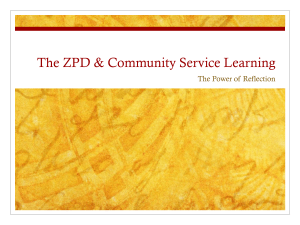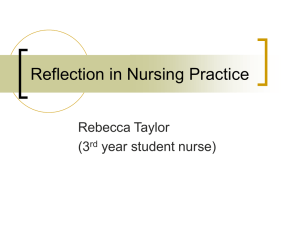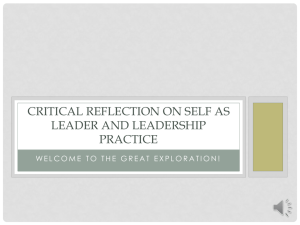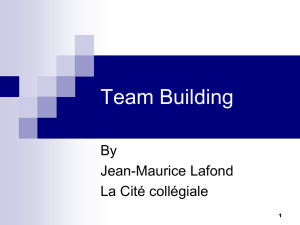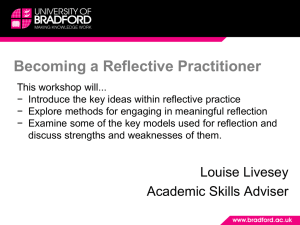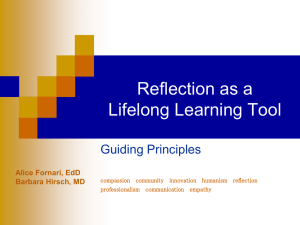Collective Reflection & Shared Thinking
advertisement
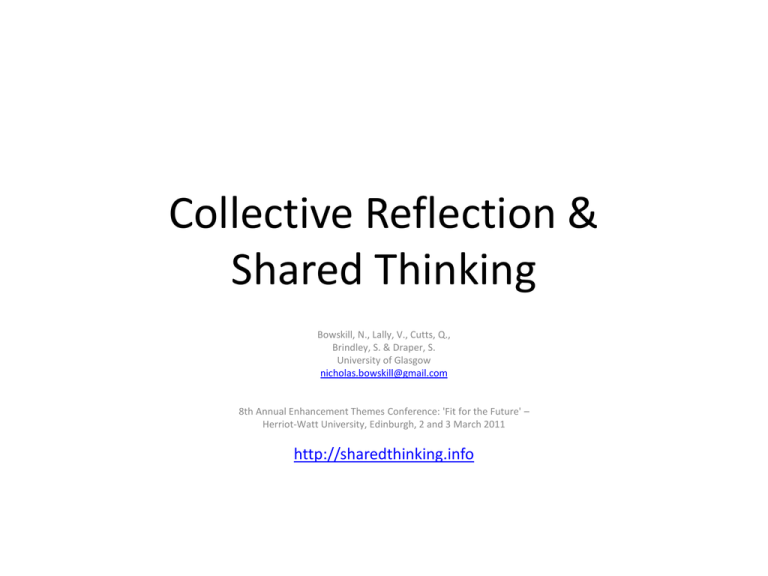
Collective Reflection & Shared Thinking Bowskill, N., Lally, V., Cutts, Q., Brindley, S. & Draper, S. University of Glasgow nicholas.bowskill@gmail.com 8th Annual Enhancement Themes Conference: 'Fit for the Future' – Herriot-Watt University, Edinburgh, 2 and 3 March 2011 http://sharedthinking.info Background of Shared Thinking • • • • University of Glasgow Kelvin-Smith Scholarship Education, Psychology and Computing Science Classroom Technology and Discussion – Shifting the idea of voting technology from teaching to reflection/learning – Collective reflection Traditional Learning • Fixed Start • Known Outcomes • Focus on Individual Products • Assessment is individual and mainly from tutor feedback • Tutor’s role is to teach • Broadly the same even with technology • Reflective Practice is on your own http://thesocietypages.org/sociologylens/2011/02/26/8032/ Shared Thinking Process and Product • Snowball GroupDiscussion Technique + Voting Technology – – – – Individual Small group Whole group Follow-Up Work What are your concerns about developing your reflective practice? Shared Thinking • Multiple Starting Points • Multiple End Points • Learning as a Whole-Group Enquiry (Stroup, Ares, etc.) • Tutor’s role is to orchestrate and to listen • Assessment includes feedback from everyone (peers and tutors) • Technology to visualise a shared understanding • ‘Listening Pedagogy’ (Rinaldi, 2005) http://www.learning-together.co.uk/index.asp Case Studies of Shared Thinking • Induction and Transition and Mentoring – New and Ancient Universities, – up to 350 students • Support Staff at an Academic Conference • Student-Teachers reflecting together on individual work placements • Academic Staff reviewing assessment practices in a university department Traditional Idea of Reflective Practice • • • • • Kolb’s Learning Cycle Introspection Individual as boundary Vague Practice Lack of Social input or context Kolb’s Experiential Cycle Collective Reflective Practice: Shared Thinking • Bowskill’s Interactionist Model of Collective Reflection • Diversity-driven (Stroup et al) • Constructivist development in the social context • Includes the multiple perspectives of situated others • Has a clear transferable practice • Provides quantitative and qualitative data for everyone involved Bowskill’s Interactionist Model of Collective Reflection: Shared Thinking 3 Levels of Impact: 1. Individual benefits - Emotional - Cognitive 2. Pedagogical - Whole-Group Enquiry - Provides a visible shared understanding 3. Research - Investigate student experience at collective level - Everyone is a researcher http://sharedthinking.info SHARED THINKING


